
Lisa's book The Hourglass Door hits store shelves May 13th and is destined to become a best-seller! I was so excited get to know Lisa and interview her to find out more about her and this awesome book she's written.
Lisa's bio reads: I knew I was destined to work with books when I opted to skip recess in elementary school to help out at the school library instead. A voracious reader my entire life, my first paying job was at the Sandy Library as a Page (I shelved books all day, dreaming of the day I could be a "Chapter" :) I worked at Waldenbooks for the four years I attended the University of Utah, earning a BA (with honors) in English (graduating cum laude in 1997). Four months to the day of my graduation, I landed a job as an Editorial Assistant at Bookcraft, Inc. I've been a book editor ever since. Perhaps with that background, it was logical that I would take the next step and actually write a book. So I did: The Hourglass Door is my first book, and the first in a trilogy.
Here's my interview with Lisa:
M.B.: When did you first know you wanted to be an author?
LISA: I grew up with writing in my blood, I think. My mom is an author and so I grew up reading and writing all kinds of things—stories, poems, plays. I remember being a sophomore in high school and writing down my goals—one of which was to be a published author before I graduated. While I didn’t get a publishing contract then, I did have some of my work featured in my high school literary magazine and I did win some state writing awards. Another early, vivid memory I have is standing in the stacks at Waldenbooks, reading the back of Dragon Prince by Melanie Rawn and thinking to myself, “I want to be the person who writes the summary on the back of the book.” And now here I am, not only writing back cover copy as part of my job as an editor, but writing the back cover copy for my own novel.
M.B.: What was the pathway like for you to get your first book published?
LISA: I love hearing about how authors find their way to publication because no two stories are ever the same. For me, it all started with a conversation I had with Chris Schoebinger (Product Director at Shadow Mountain) on the afternoon of June 13, 2007, about YA fiction—what worked, what didn’t, and what he was hoping to find to publish. Our conversation was interrupted, but I kept thinking about it. After work, I was driving to Provo to attend a writer’s conference and I started thinking about the possibility of writing a YA love story. And then it was like Dante and Abby just jumped in the car with me and told me the whole story of The Hourglass Door. As soon as I pulled into the parking lot of the conference, I scrounged up some paper I had in the car and wrote everything down as fast as I could—plot outlines, character’s names and relationships, key scenes. Chris was attending the same conference and I made a beeline for him the minute I came through the door. I showed him what I’d done and said, “What do you think?” Chris said, “I think you should write it.” So I did.
It took me about a year to complete the manuscript. I turned it in and waited anxiously for Chris’s feedback. I knew that, even though we worked together, if he didn’t like it, he wasn’t going to publish it. It was early in June 2008 when we met and he said, yes, he did want to publish my book and it officially went on the schedule for Summer 2009. Start to finish, it’ll be almost exactly two years from when I got the idea to when finished books will be published and in the stores.
M.B.: Were you ever discouraged along the way? If so, how did you deal with it?
LISA: I think discouragement and doubt are part and parcel of writing. It’s sometimes hard to convince yourself that what you have to say is something other people are going to want to read—especially on those days that end with a still-blank screen—but I found that sometimes the doubt can be a help instead of a hindrance. On those days when I didn’t know what to do, or when that little voice in the back of my head tried to tell me my writing wasn’t good enough and no one was going to like it, I found that if I tossed all that doubt and discouragement out the window—magic happened. Some of my best writing came about when I let loose and just wrote.
M.B.: What is your writing schedule like?
LISA: With a full-time job, I do most of my writing on the weekends and the occasional weeknight. For Hourglass Door, though, a couple of key scenes wouldn’t wait until I got home so I wrote them by hand on the train on my way home from work. Often I’ll do a lot of thinking and mental plotting on the train and then, while it’s fresh in my mind, I’ll jot down an outline to work on later.
M.B.: Where did your idea come from for this book?
LISA: As a junior in college, I took a class at the University of Utah that focused on Dante’s Divine Comedy. The class turned out to be one of the best classes I ever took at college—and one of my favorites. At the end of Paradiso, there is a beautiful passage that I fell in love with—Dante’s final prayer to his true love, Beatrice. And so when I first thought about writing a YA love story, I immediately thought of Dante and Beatrice. I drew a lot of inspiration from the classics—Dante, Shakespeare, Virgil—as well as from some of my favorite poets, including W. H. Auden.
M.B.: What words of advice do you have for other writers who desire to have their manuscripts become books in print?
LISA: Don’t give up! I know that sounds like a cliché, but there is a world of truth in those three words. Publishing is all about sending your story to the right place at the right time. I was talking to a friend the other day about this and I said I thought that publishing sometimes is like dating because often you have to go on a lot of blind dates before you find Mr. Right. So keep polishing up those stories and keep sending them out. If it’s a good story, someone will propose—so to speak. J
M.B.: What is your process of brainstorming a story? Do you just sit down and write, waiting to see what happens next? Or do you outline first?
LISA: I’ve done both, and I’ve had success with both. Because I’m the type of person who likes to make lists and organize my life, I really enjoy outlining a story start to finish. But because I’m also the type of person who loves to be surprised and enjoys puzzles and mysteries, I allow enough flexibility in my outline to just write and see where the story takes me. Even though I had outlined all of Hourglass Door over the course of a couple of days, it turned out that the whole second half wasn’t going to work the way I had planned it. So I ditched the outline and followed the story into new and unexplored territory.
M.B.: Do you ever experience a snag in a story, a form of writer's block? If so, how do you deal with it?
LISA: When I was younger, I’d write chronologically. I’d start at chapter one and try to write straight through. But inevitably, I’d run into a troublesome spot and instead of skipping to something else, I’d stop. So now, I write whatever I want, whenever I want. If there is a scene that is itching at my brain, then I’ll write that—even if I don’t know where it will end up in the story. I keep a file labeled “Text That Needs a Home” where I gather up all the odds and ends and bits of scenes. Sometimes they work into the story and sometimes they don’t. But I find that when I follow my muse, I write more and stop less.
M.B.: Do you need absolute quiet to write? Do you listen to music when you are writing?
LISA: I enjoy some background noise, but it’s harder to write if it’s a TV show or movie—I get caught up in that story instead of working on mine. Music is a must for me. I love stretching out on the couch with my computer on my lap, my cat asleep on my legs, and my iPod on shuffle—a trifecta of writing bliss.
M.B.: What kinds of inspiration do you use during your story creation periods?
LISA: Is chocolate considered an inspiration? J For me, I love it when I find a story—whether in a book or a movie—that is deeply satisfying to me. I love analyzing a good story, seeing what works and why, and then thinking about what I can learn from it and how I can apply to my own work. I also find inspiration in the relationships I have with my family and friends.
M.B.: Who has made the greatest difference for you as a writer?
LISA: I would probably have to say my mom (LaRene Gaunt). She set the example for me with her own writing and her own books. She is always willing to give me honest feedback on my writing—she’ll tell me what is good and what needs work as well as suggestions on how to improve. She loves to talk shop with me about all things books. And when I was little, she loved to have me read aloud to her. We read lots and lots of books together that way—me following her around the house while she hung up wallpaper or made cookies. Whatever talent I have as a writer was first nurtured and encouraged by my mom and I am so grateful to her.
M.B.: Do you use a critique group during the writing process? Why or why not?
LISA: I do belong to a writing group and I love it! It’s a small group of people I’ve met at work and we are all committed to improving as writers. We meet every other Saturday for breakfast and books. We have rotating deadlines so every ten to twelve weeks my work is due for discussion. It’s also nice because then we can focus on one person’s work each time and not feel the extra pressure of having to turn in something every two weeks. But there is still enough pressure that the deadlines become helpful. One reason I wrote Hourglass Door on such a quick schedule was because I was working against my writer’s group deadlines.
M.B.: Anything about yourself that you would like readers to know about?
LISA: My favorite Girl Scout cookies are Samoas. I’ve seen Rush in concert eight times; they are easily the best band on the planet. I never miss an episode of Lost. I love watching previews at the movie theater (and ordering extra butter on my popcorn). I love jigsaw puzzles and Sudoku puzzles—but not crossword puzzles. I’m becoming more of a sports fan every year (Go Utes!) The best movie I saw last year was The Dark Knight and one of the best books I read last year was Watchmen by Alan Moore and David Gibbons.
M.B.: Any final words you would like to share.
LISA: I’ve shared this motto before, but it’s worth sharing again: “Don’t hurry. Don’t worry. Don’t quit.” I don’t know who said it—it was on a display I saw at Disneyland and attributed to one of Walt Disney’s Imagineers—but it’s one of my favorites. Even though he was talking about animation, I think it applies to anything creative. Don’t hurry your talent—develop it. Don’t worry if you make a mistake. Don’t quit—persistence is the key to great art.
M.B.: Where can our readers go to find your books and order them?
LISA: The Hourglass Door is available for pre-orders at DeseretBook.com, Amazon.com, and BN.com. The book will be in stores May 13, 2009. I’m thrilled to join the ranks of published authors and I hope people enjoy my book. I’d love to hear readers’ reactions and reviews; you can contact me (and read my blog “The Word Nerd”) at my web site LisaMangum.com.
M.B.: When did you first know you wanted to be an author?
LISA: I grew up with writing in my blood, I think. My mom is an author and so I grew up reading and writing all kinds of things—stories, poems, plays. I remember being a sophomore in high school and writing down my goals—one of which was to be a published author before I graduated. While I didn’t get a publishing contract then, I did have some of my work featured in my high school literary magazine and I did win some state writing awards. Another early, vivid memory I have is standing in the stacks at Waldenbooks, reading the back of Dragon Prince by Melanie Rawn and thinking to myself, “I want to be the person who writes the summary on the back of the book.” And now here I am, not only writing back cover copy as part of my job as an editor, but writing the back cover copy for my own novel.
M.B.: What was the pathway like for you to get your first book published?
LISA: I love hearing about how authors find their way to publication because no two stories are ever the same. For me, it all started with a conversation I had with Chris Schoebinger (Product Director at Shadow Mountain) on the afternoon of June 13, 2007, about YA fiction—what worked, what didn’t, and what he was hoping to find to publish. Our conversation was interrupted, but I kept thinking about it. After work, I was driving to Provo to attend a writer’s conference and I started thinking about the possibility of writing a YA love story. And then it was like Dante and Abby just jumped in the car with me and told me the whole story of The Hourglass Door. As soon as I pulled into the parking lot of the conference, I scrounged up some paper I had in the car and wrote everything down as fast as I could—plot outlines, character’s names and relationships, key scenes. Chris was attending the same conference and I made a beeline for him the minute I came through the door. I showed him what I’d done and said, “What do you think?” Chris said, “I think you should write it.” So I did.
It took me about a year to complete the manuscript. I turned it in and waited anxiously for Chris’s feedback. I knew that, even though we worked together, if he didn’t like it, he wasn’t going to publish it. It was early in June 2008 when we met and he said, yes, he did want to publish my book and it officially went on the schedule for Summer 2009. Start to finish, it’ll be almost exactly two years from when I got the idea to when finished books will be published and in the stores.
M.B.: Were you ever discouraged along the way? If so, how did you deal with it?
LISA: I think discouragement and doubt are part and parcel of writing. It’s sometimes hard to convince yourself that what you have to say is something other people are going to want to read—especially on those days that end with a still-blank screen—but I found that sometimes the doubt can be a help instead of a hindrance. On those days when I didn’t know what to do, or when that little voice in the back of my head tried to tell me my writing wasn’t good enough and no one was going to like it, I found that if I tossed all that doubt and discouragement out the window—magic happened. Some of my best writing came about when I let loose and just wrote.
M.B.: What is your writing schedule like?
LISA: With a full-time job, I do most of my writing on the weekends and the occasional weeknight. For Hourglass Door, though, a couple of key scenes wouldn’t wait until I got home so I wrote them by hand on the train on my way home from work. Often I’ll do a lot of thinking and mental plotting on the train and then, while it’s fresh in my mind, I’ll jot down an outline to work on later.
M.B.: Where did your idea come from for this book?
LISA: As a junior in college, I took a class at the University of Utah that focused on Dante’s Divine Comedy. The class turned out to be one of the best classes I ever took at college—and one of my favorites. At the end of Paradiso, there is a beautiful passage that I fell in love with—Dante’s final prayer to his true love, Beatrice. And so when I first thought about writing a YA love story, I immediately thought of Dante and Beatrice. I drew a lot of inspiration from the classics—Dante, Shakespeare, Virgil—as well as from some of my favorite poets, including W. H. Auden.
M.B.: What words of advice do you have for other writers who desire to have their manuscripts become books in print?
LISA: Don’t give up! I know that sounds like a cliché, but there is a world of truth in those three words. Publishing is all about sending your story to the right place at the right time. I was talking to a friend the other day about this and I said I thought that publishing sometimes is like dating because often you have to go on a lot of blind dates before you find Mr. Right. So keep polishing up those stories and keep sending them out. If it’s a good story, someone will propose—so to speak. J
M.B.: What is your process of brainstorming a story? Do you just sit down and write, waiting to see what happens next? Or do you outline first?
LISA: I’ve done both, and I’ve had success with both. Because I’m the type of person who likes to make lists and organize my life, I really enjoy outlining a story start to finish. But because I’m also the type of person who loves to be surprised and enjoys puzzles and mysteries, I allow enough flexibility in my outline to just write and see where the story takes me. Even though I had outlined all of Hourglass Door over the course of a couple of days, it turned out that the whole second half wasn’t going to work the way I had planned it. So I ditched the outline and followed the story into new and unexplored territory.
M.B.: Do you ever experience a snag in a story, a form of writer's block? If so, how do you deal with it?
LISA: When I was younger, I’d write chronologically. I’d start at chapter one and try to write straight through. But inevitably, I’d run into a troublesome spot and instead of skipping to something else, I’d stop. So now, I write whatever I want, whenever I want. If there is a scene that is itching at my brain, then I’ll write that—even if I don’t know where it will end up in the story. I keep a file labeled “Text That Needs a Home” where I gather up all the odds and ends and bits of scenes. Sometimes they work into the story and sometimes they don’t. But I find that when I follow my muse, I write more and stop less.
M.B.: Do you need absolute quiet to write? Do you listen to music when you are writing?
LISA: I enjoy some background noise, but it’s harder to write if it’s a TV show or movie—I get caught up in that story instead of working on mine. Music is a must for me. I love stretching out on the couch with my computer on my lap, my cat asleep on my legs, and my iPod on shuffle—a trifecta of writing bliss.
M.B.: What kinds of inspiration do you use during your story creation periods?
LISA: Is chocolate considered an inspiration? J For me, I love it when I find a story—whether in a book or a movie—that is deeply satisfying to me. I love analyzing a good story, seeing what works and why, and then thinking about what I can learn from it and how I can apply to my own work. I also find inspiration in the relationships I have with my family and friends.
M.B.: Who has made the greatest difference for you as a writer?
LISA: I would probably have to say my mom (LaRene Gaunt). She set the example for me with her own writing and her own books. She is always willing to give me honest feedback on my writing—she’ll tell me what is good and what needs work as well as suggestions on how to improve. She loves to talk shop with me about all things books. And when I was little, she loved to have me read aloud to her. We read lots and lots of books together that way—me following her around the house while she hung up wallpaper or made cookies. Whatever talent I have as a writer was first nurtured and encouraged by my mom and I am so grateful to her.
M.B.: Do you use a critique group during the writing process? Why or why not?
LISA: I do belong to a writing group and I love it! It’s a small group of people I’ve met at work and we are all committed to improving as writers. We meet every other Saturday for breakfast and books. We have rotating deadlines so every ten to twelve weeks my work is due for discussion. It’s also nice because then we can focus on one person’s work each time and not feel the extra pressure of having to turn in something every two weeks. But there is still enough pressure that the deadlines become helpful. One reason I wrote Hourglass Door on such a quick schedule was because I was working against my writer’s group deadlines.
M.B.: Anything about yourself that you would like readers to know about?
LISA: My favorite Girl Scout cookies are Samoas. I’ve seen Rush in concert eight times; they are easily the best band on the planet. I never miss an episode of Lost. I love watching previews at the movie theater (and ordering extra butter on my popcorn). I love jigsaw puzzles and Sudoku puzzles—but not crossword puzzles. I’m becoming more of a sports fan every year (Go Utes!) The best movie I saw last year was The Dark Knight and one of the best books I read last year was Watchmen by Alan Moore and David Gibbons.
M.B.: Any final words you would like to share.
LISA: I’ve shared this motto before, but it’s worth sharing again: “Don’t hurry. Don’t worry. Don’t quit.” I don’t know who said it—it was on a display I saw at Disneyland and attributed to one of Walt Disney’s Imagineers—but it’s one of my favorites. Even though he was talking about animation, I think it applies to anything creative. Don’t hurry your talent—develop it. Don’t worry if you make a mistake. Don’t quit—persistence is the key to great art.
M.B.: Where can our readers go to find your books and order them?
LISA: The Hourglass Door is available for pre-orders at DeseretBook.com, Amazon.com, and BN.com. The book will be in stores May 13, 2009. I’m thrilled to join the ranks of published authors and I hope people enjoy my book. I’d love to hear readers’ reactions and reviews; you can contact me (and read my blog “The Word Nerd”) at my web site LisaMangum.com.
I want to thank Lisa for spending time sharing a little about herself and her writing. She is one talented lady and I'm really looking forward to The Hourglass Door.




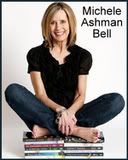
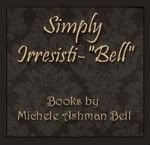





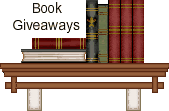
















































-page-001.jpg)












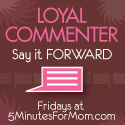
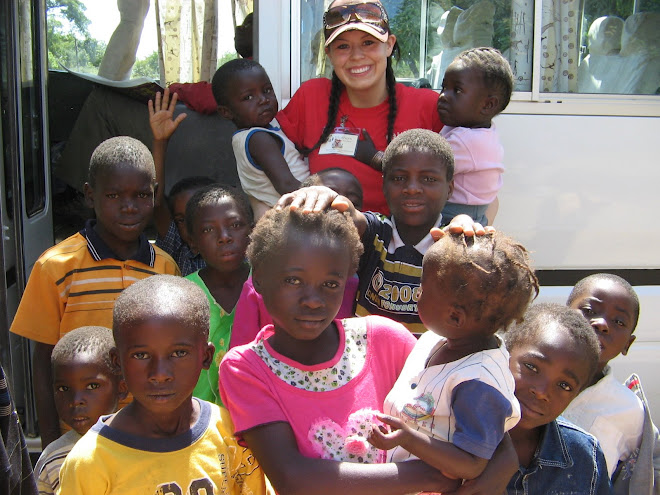
8 comments:
Great interview! I am definetly going to look for it (probably on Amazon since I'm impatient!) Very excited to read it!
Michele - I am totally freaking out that this is your blog!!! I loved A Modest Proposal...I feel a little starstruck!
I love Samoas and chocolate inspiration too. (It obviously works.)
The question I wanted Lisa to answer, however, was how was it like as an editor to be edited. Did that make it easier or harder?
Great interview. Isn't it fun when you have a great idea and everything actually works! Way to go Lisa.
Samoas are hands down the best cookie in the world--but such a rip off. Do you realize you spend almost a quarter PER cookie? Now Thin Mints are a quick second, and you get 40 in a box. That's called economizing. I order a case of both each year and horde them.
FWIW, the Dryers Samoa ice cream is offensively bad--but the thin mint ice cream is very, very good.
This was fascinating, here I thought I knew Lisa and yet there was surprise after surprise. I can't wait to read the book!
Wow! I'm so excited for Lisa! Woo,woo,woo! I'll be reading it, oh yeah!
I loved the interview. Congratulations, Lisa. I can't wait to read your book. Love your blog, Michelle. Linda Garner
Mmmm. I've become hooked and now to find the book.
Great interview.
I just finished reading the ARC of The Hourglass Door and it was amazing! I'm definitely going to pick up a copy when it comes out :-)
Post a Comment